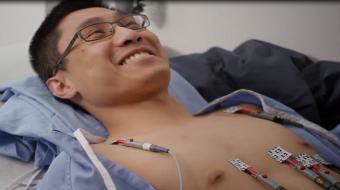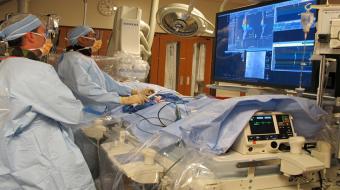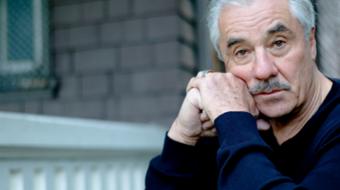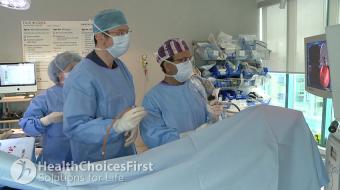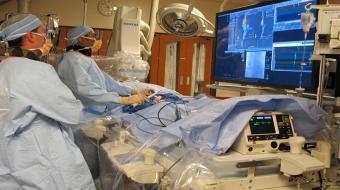Featured Videos
Premier Practitioners
All Videos
Heart medications work very well for many people, but they aren’t for everyone. Some people experience side effects or can’t tolerate the medication. In this case, your physician or cardiologist may suggest catheter ablation. Cardiac ablation scars or destroys the tissue in your heart that causes an abnormal heart rhythm, stopping the arrhythmia.
What to Expect During the Ablation Procedure with your Cardiologist
The doctor will insert electrode catheters through a vein or artery in your groin. He or she will thread it to your heart and emit a pulse of radiofrequency energy that destroys the abnormal tissue to correct the irregular heartbeat. Radiofrequency ablation is a low-risk procedure with a high success rate. It can usually be done under local anesthetic. Patients generally take blood thinners up until the ablation procedure, and receive extra blood thinners during the ablation procedure to reduce the risk of a blood clot in the heart that could lead to a stroke.
There’s also a risk that the surgeon could burn a hole in the heart and cause bleeding, which might require urgent surgery to fix. That’s why surgeons limit the amount of power used during the procedure, and the risk is less than 0.2%. There’s always a risk potentially of a fatal complication with any procedure that you have performed and ablation is no different.
What to Expect After the Ablation Procedure
Many patients will be able to leave the hospital the same day they undergo a cardiac ablation procedure. Others will need to stay overnight. Most people can return to their regular activities the day after they leave the hospital. You’ll receive written instructions on post-catheter ablation care.
Your success rate depends in part on the type of atrial fibrillation that you have. If you’re in and out of atrial fibrillation, known as paroxysmal atrial fibrillation, your success rate is going to be higher. The chance of eliminating your atrial fibrillation after one attempt at the procedure is about 70 to 75 percent, and after two attempts at the procedure, 85 to 90 percent. If you’re in atrial fibrillation all the time, called persistent atrial fibrillation, then your success rate is going to be lower. The chance of success after one attempt at the procedure is maybe about 65 to 70 percent, and after two attempts about 80 to 85 percent.
Following the ablation procedure, it's essential to focus on a healthy diet and exercise plan to prevent future cardiovascular events such as stroke. If you have atrial fibrillation, your risk of stroke is about five times that of people without atrial fibrillation.
Talk to your cardiologist if you'd like more information on the ablation procedure.
Visit HealthChoicesFirst.com for more videos and resources on heart health.
Cardiac ablation is a procedure that can correct heart rhythm problems (arrhythmias). Cardiac ablation works by scarring or destroying tissue in your heart that triggers or sustains an abnormal heart rhythm. In some cases, cardiac ablation prevents abnormal electrical signals from entering your heart and, thus, stops the arrhythmia. A local Cardiologists can help you with ablation treatment.


